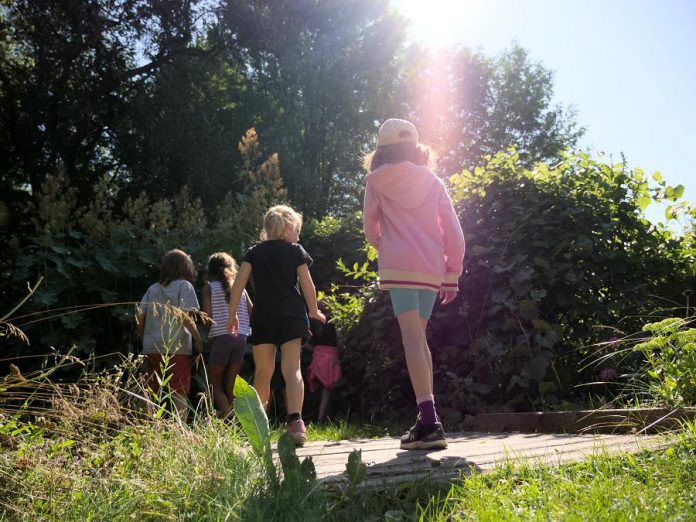
We are still be in the depths of winter, but parents and guardians are already making summer plans and registering children for camps.
Whether or not you attended a summer camp as a child, recent research shows that there are clear developmental benefits to attending summer camp. In 2010, the Canadian Camping Association and the University of Waterloo undertook the Canadian Summer Camp Research Project. This project was the first of its scope in Canada to study the positive growth and development of children in summer camps.
Researchers considered five benefits: socialization, being more active, building empathy, developing self-confidence, and increasing environmental awareness.
To help with your planning for this summer, here is an overview of these benefits, including some tips about preparing for camp and choosing the right camp for your child.
Socialization
Summer camp provides an immersive environment for children to make new friends and develop their social skills.
To support positive social development at camp, both parents and counsellors need to prepare for the first day at camp. Children may feel excited and slightly outside their comfort zones as they say goodbye to their parents, meet a bunch of new friends, and get introduced to their counsellors and the camp environment.
The introduction to the camp should be welcoming and comfortable so that all this excitement encourages the development of social skills rather than unhealthy stress or anxiety.
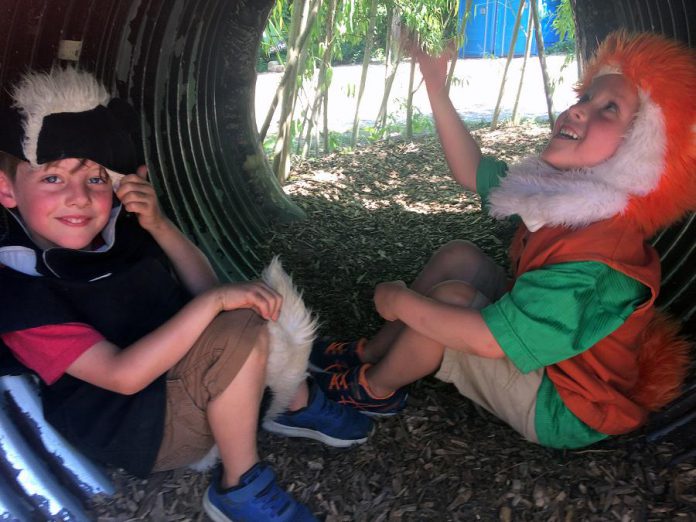
A solid counsellor training program provides counsellors with a toolkit of activities, games, and techniques to ensure all campers feel at home in their new environment.
Parents may consider talking in advance about any questions or concerns their children may have. Parents can also reach out in advance to camp directors about the first day at camp to ask about supports and answer questions for nervous campers.
Being more active
One of the top benefits of summer camp is that it encourages activity and counteracts our increasingly sedentary lifestyle.
Two recent studies from Statistics Canada show that children are spending more time with digital devices and less time getting their daily dose of physical activity. Video games, social media, and a lack of free time all conspire to prevent most children from getting the recommended one hour of exercise per day they need for healthy development.
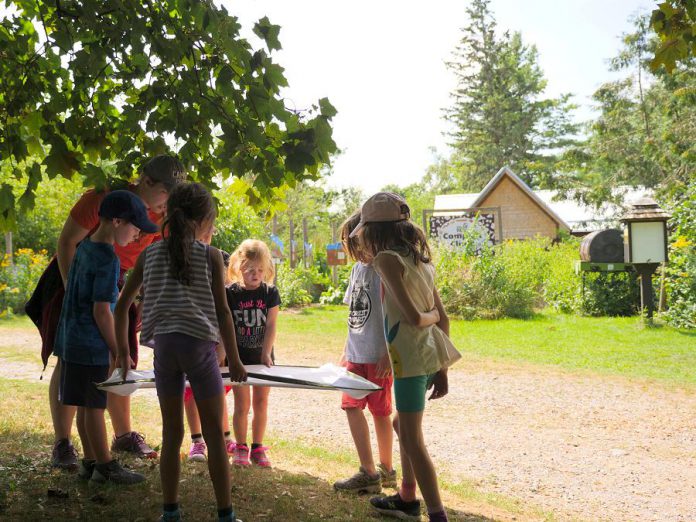
When selecting a summer camp, the choice and variety of activities can be important. Combinations of formal and informal games help keep campers active for much of the day.
When selecting a camp, parents can ask if campers will have a range of activity choices or not. Some children, for example, prefer individual sports to team sports. If you think your child will benefit from a range of options, try to find a camp that offers them a choice of activities.
As you consider camps, ask about their electronics policy. Some camps have a ban on electronics, which ensures that campers will be more engaged both with the activities and with their fellow campers.
Building empathy
Many camps highlight the advancement of hard skills such as canoeing, archery, chess, computer coding, dance, and others. Soft skills, however, are equally important and often not as easy to demonstrate or build.
Summer camp is a great opportunity to build soft skills. Camps can offer immersive experiences in which campers learn how to process their emotions and watch as their new friends do the same.
Counsellors are key facilitators in the development of soft skills. Many counsellors are masterful at providing an open space for discussions.
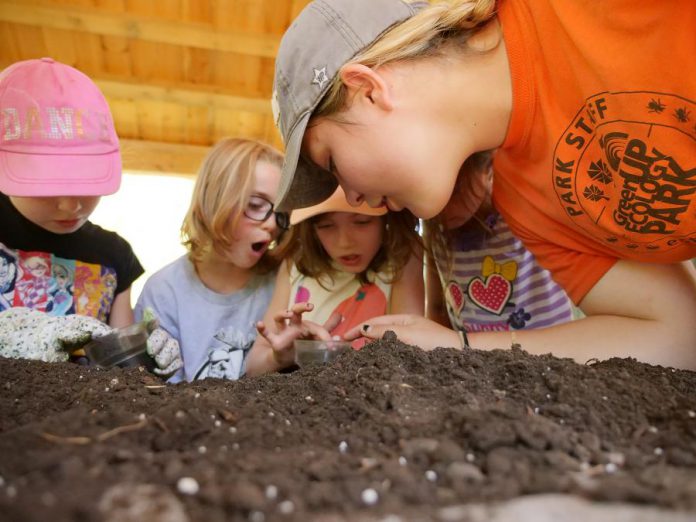
Ending the day with a check-in, for example, gives campers a chance to share the positives and negatives of their day. Sharing and listening to how other campers are feeling can develop self-aware campers who can relate to others emotionally.
When selecting a camp, consider that low camper-to-counsellor ratios support these deeper connections and the development of soft skills.
Developing self-confidence
Failure can be a valuable learning experience. Yes, that’s right: experiencing failure in supportive environments can be a positive and transformative experience.
Many activities at camp are designed to have campers learn from failure. Performing a skit, putting up a tent, or crawling through mud are all opportunities to try new activities and learn from failure. When campers are allowed to fail, they can feel empowered to try out a new tactic.
Camp is also an opportunity for students to shift gears after a full year of school. I have seen campers arrive at camp feeling down after a tough school year. Only one week later, these campers returned home inspired by the change in environment and a new sense of freedom in their learning.
Increasing environmental awareness
Youth today are growing up between a rock and a hard place. On the one hand, youth are bombarded by news of the climate crisis and, on the other hand, youth often suffer from a lack of connection with the natural world.
A recent study found that this combination can contribute to anxiety and depression in ways that impact youth more than adults.
One of the solutions to this is to spend more time in nature. Spending time amongst trees and natural spaces can heal us, and education about our natural environment can empower us to protect our natural world.
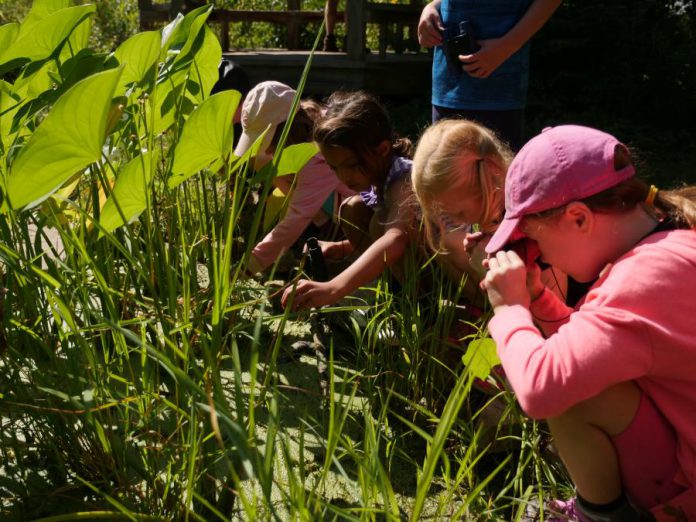
Many camps provide the opportunity for campers to immerse themselves in the outdoors. This allows for a deeper connection to the natural world. For some campers this may be their first time in a mostly green space.
Even in urban areas, camps are able to provide an opportunity for children to participate with the natural world.
In the Peterborough area, Camp Kawartha, TRACKS, and GreenUP all offer programs that focus on nature connection and awareness.
You can register for GreenUP’s Earth Adventure’s Summer Camp at www.greenup.on.ca/ecology-park/childrens-programs/.
Summer camp is far more than just somewhere to put the kids when school is out. Summer camps provide social, emotional, and confidence-building experiences, as well as essential physical activity and environmental awareness.
With registration now open and quickly filling up for many camps, this is the time to consider which camp is right. I hope you and your children are as excited about summer camp as I am this year.


























